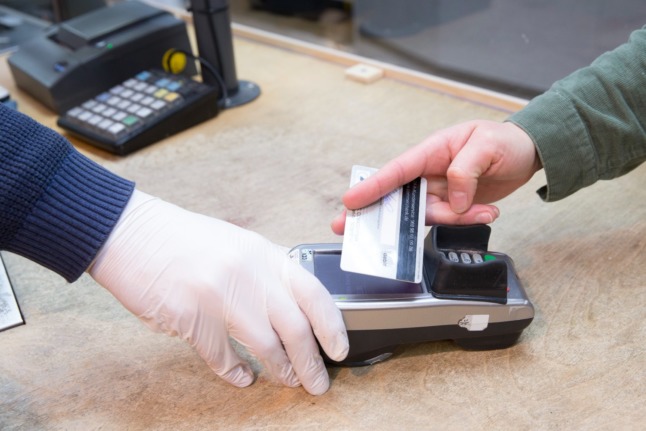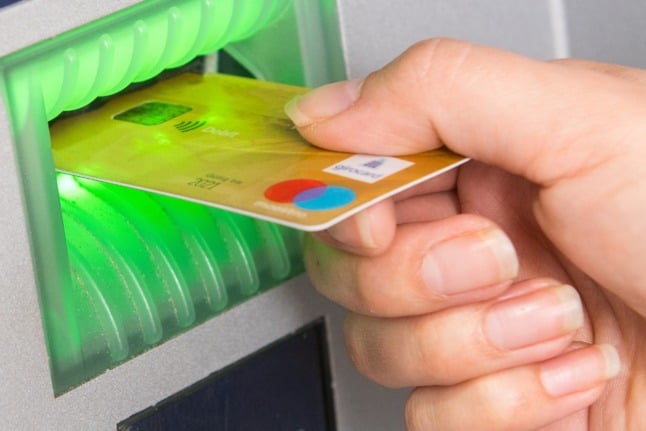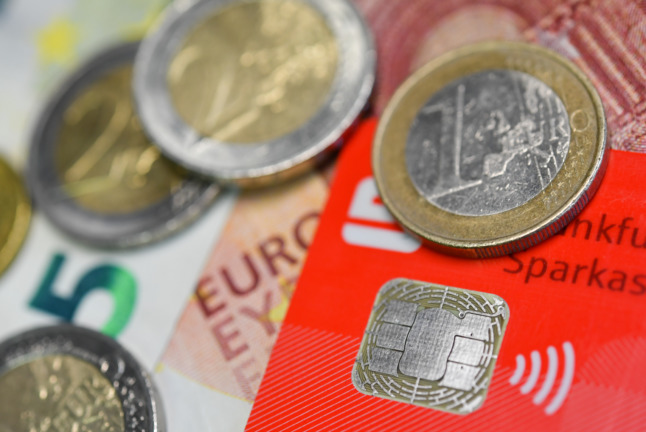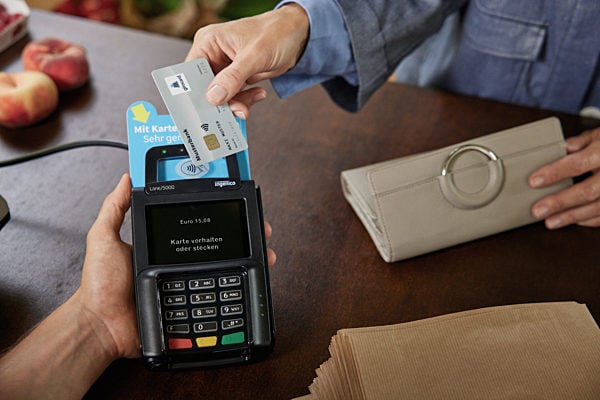Getting to grips with the banking system and opening accounts is a major part of settling into life abroad.
As The Local reported earlier this week, there are lots of things to consider when choosing a bank to store your hard-earned cash in Germany. They include charges, the types of accounts, and if you meet the requirements to open the account.
READ MORE: What are the best banks for foreigners in Germany?
We also asked readers what they’d like to see improved upon when it comes to banking in the Bundesrepublik. Here’s what they had to say.
‘Far from modern’
Perhaps it isn’t surprising given that Germany is known for still making use of the fax machine regularly, but one of the standout points was that Germany needs to do more to modernise its services.
Lots of readers flagged up a need to improve online banking.
Deniss, 42, in Frankfurt said: “They are definitely lagging behind in terms of offering modern online technologies to customers.”
Gondal, 37, in Böblingen, said: “They are far from modern banks. A lot actually has to be changed. German banks should provide online services.”
Mohamed Abouseif, 25, in Munich called for “more digitisation and better English-language support from banks and websites as it is a very common second language”.
Abouseif also said more German banks should offer a debit Visa/Mastercard with current accounts “that can actually be used online or in other countries instead of the Girocard (EC card) which is mostly good for grocery shopping”.
“It really surprised me that Poland has had this since I first went there in 2014, whereas Germany is still behind when it comes to implementing such things.”
Simon Slade, 69, thinks Germany needs a rethink on the “archaic” EC card – which is the country’s preferred method of card payment.
READ ALSO: ‘They thought it was witchcraft’: The verdict on paying with card in Germany

Some businesses – such as post offices or government buildings – only accept the EC card or cash.
Germany should make “real and concerted moves towards making it simple for retailers, cafes etc to accept cashless payments – for example charge them for depositing cash”, said Slade.
In fact, lots of readers highlighted that they would like to see more banks in Germany providing English-language services.
Dorka, 27, in Baden-Württemberg, said: “Please also be in English! Retiring this EC system completely would be also nice.”
Keshava Prasad Gubbi, 32, in Munich said he’d like banks to have “more English usage, be more open to internationals. Letters and documents in English and German would be so much more useful than having it only in German.”
J.M. in Potsdam summed up the mood about banking in Germany: “It should move into this century.”
No more fees
Lots of respondents to our survey flagged up that Germany’s fees for simply having a bank account, or for taking out your own cash put them off the system.
“Now almost all banks have a mandatory monthly fee of minimum €7-10 for personal accounts,” said one reader. “Whereas in the UK and USA almost all personal accounts are free of charge without any minimum balance.”
READ ALSO: Why bank customers in Germany are facing higher fees
Himeel, 29, in Regensburg, said German banks needed to work on these points: “Going paperless, providing better savings options (Tagesgeldkonto) and free card transactions for frequent travellers.”
Alison, 29, in Hamburg said there shouldn’t be any fees on current accounts.
German banks generally charge you to take out cash if it’s from an ATM that isn’t your bank, although you might get a few withdrawals per month free of charge as part of the account.
Chris in Brandenburg said being able to “use ATMs from other banks for free” would make a big difference.

Speedier transfers
Several people questioned why transfers between different banks take longer in Germany than in most other European countries – sometimes up to three working days.
Prince, 35, in Munich, said: “Transfers from one bank to another are very slow. It seems we are still issuing a cheque instead of online transfer.”
Sunil Kulkarni, 33, in Reutlingen, said real-time transfers are a “must in today’s world”. “A few banks already provide this option, but with an additional fee. I would prefer this service to be free for everyone.”
A few respondents to our survey brought up the issue of banks acting unreasonably.
“It’s ridiculous that they can close your bank account with only two months notice, without any reason,” said Richard, 65, in Dortmund.
Mary, 54, in Dortmund also highlighted “banks’ ability to close accounts so easily” as a problem.
Meanwhile, the issue of the Foreign Account Tax Compliance Act, or FATCA for Americans abroad was also highlighted. The legislation, which obliges foreign banks to report back to the US tax office on any assets held in these accounts by US taxpayers, has resulted in some German banks closing accounts or turning away customers from the United States.
J Rosenbaum said: “US citizens are very limited in the services they can use – not eligible to earn interest, no investment accounts, etc. US FATCA legislation has made US expats financial pariahs.”
READ ALSO: Why are Americans being turned away from German banks?
***
Thanks to everyone who shared their experience with us. Although we weren’t able to include all the submissions, we read each of them.



 Please whitelist us to continue reading.
Please whitelist us to continue reading.
Since COVID, it’s getting easier to pay for things with cards instead of cash in Germany, albeit only EC cards. Even so, in Germany you still need to carry cash on you just in case, since you still can’t assume you can just pay with a card. That being the case, what annoys me is that you have pay fees to withdraw that cash. That would be the one big change I would appreciate! It’s simply profiteering by the banks. A small fee to cover the cost of the convenience is reasonable I suppose, but up to €5 per transaction is just a complete rip off.
It is a good article and covers the problems. I see, however, no indication that any attempt was made by the reporting staff to contact the banking industry. I would be very interested in its response.
Agreed….I keep wondering “WHY is the German banking industry so last-century?” It would be interesting to hear what the banks have to say.
Hi folks, good idea – we’ll contact banks for a future article to see what they think/their plans etc. This one was based on our readers’ point of views.
Thanks.
I don’t know, a lot of this reads as inability to cope with cultural differences or lack of up-to-date information.
My tiny local Volksbank supports contactless withdrawals, free cash deposits, Apple Pay, tons of ways to pay online – and still with a local branch and free ATMs around EU. I’m ok with paying €5 a month for this! (by the way, monthly banking fees are common outside of U.S. / U.K. world).
EC card is a way to drive costs down for retailers and banks by excluding greedy international payment networks like Visa and Mastercard – and their huge processing fees. This is not in our interest to change!
And English? Come on, this is just pure entitlement. In the age of Google Translate, it’s inexcusable.
1 regulation also stupid. Having to prove where your money comes from if you deposit more than 10k euros in a year.
For anyone dissatisfied with the formal and cumbersome German banking system, simply close your account and use N26 bank Berliin. Free account, transfers, Various language options, app/online usage etc. Simple. Best move i ever made.
Or you could just carry on paying the outdated and service-unfriendly established physical German Banks to put your money in their vaults, charge you and watch it decline month on month. ….its a no-brainer really